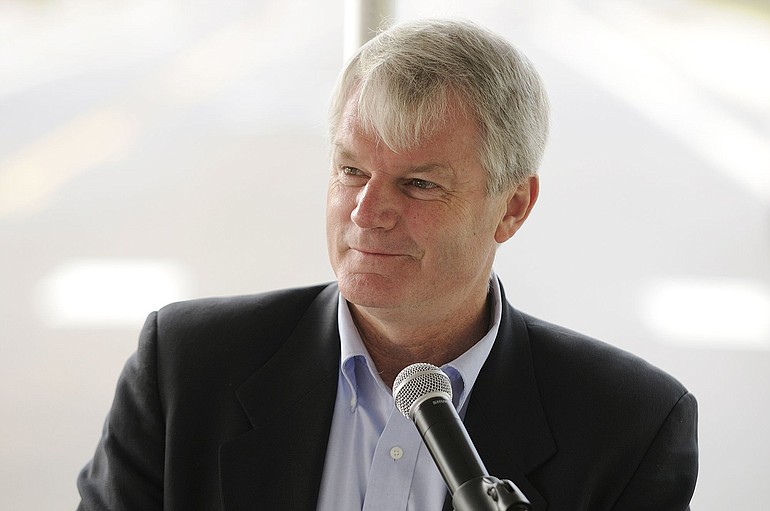U.S. Rep. Brian Baird visited Oregon Iron Works in Vancouver on Friday to talk about green job creation and his proposed wave-energy legislation.
The Clackamas, Ore.-based company, which operates a fabrication plant on the Columbia River-front in Vancouver, is finishing construction on the first of 10 prototype wave-energy buoys it’s building for New Jersey-based Ocean Power Technologies. When completed, the 130-foot-long structures will be installed in the Pacific Ocean about three miles off the coast of Reedsport, Ore.
“Here’s an example of jobs being created by the need for renewable energy,” said Baird, D-Vancouver. “I’d like (Washington) to lead the world in the export of renewable energy technology.”
The project will bring the company about $3 million to $4 million per buoy and employ about 35 full-time workers, said David Gibson, renewable energy program manager for Oregon Iron Works.
Oregon Iron Works officials say they hope that the wave-energy industry will blossom, leading to more job creation and long-term growth for the company. But more research and testing of the nascent technology must first be done to ensure it can compete financially with other forms of renewable energy, Gibson said.
“It’s a mighty big ocean,” Gibson said. “Our goal is to produce these on a big scale.”
Drafting legislation
In an effort to speed technology development, Baird is drafting a “marine hydrokinetic energy research and development” bill with Rep. Jay Inslee, D-Wash., that would provide funding through the Department of Energy to develop wave, tidal and other hydrokinetic energy test sites throughout the U.S.
Such sites would allow testing of prototype technologies in areas where the environmental impacts have already been assessed, shortening the permitting process and time to market.
Baird expects to introduce the bill within coming weeks.
“It’s critical we get devices in the water,” Baird said. “We need a test bed so we can move quicker on this.”
Libby Tucker: 360-735-4553 or libby.tucker@columbian.com.



